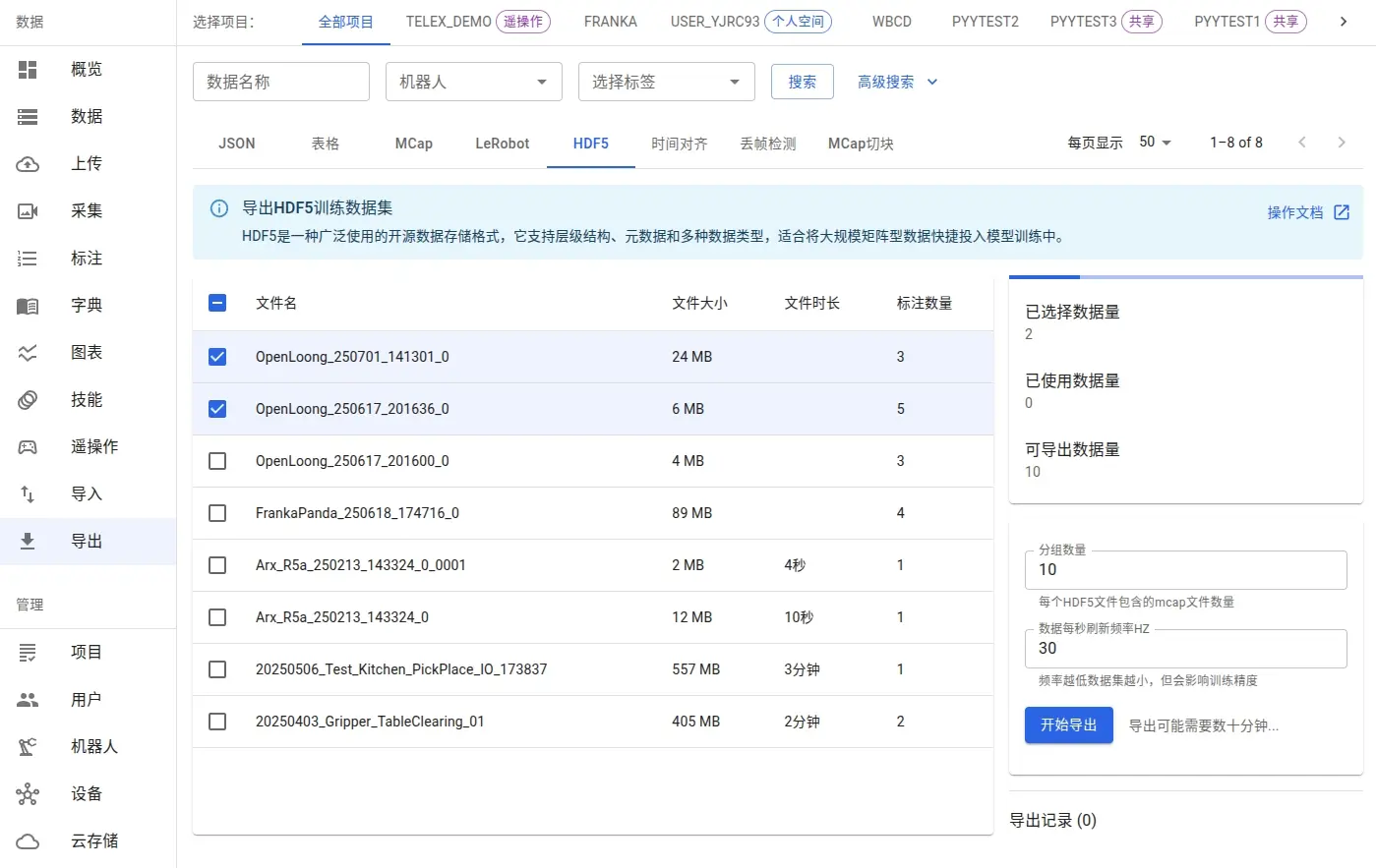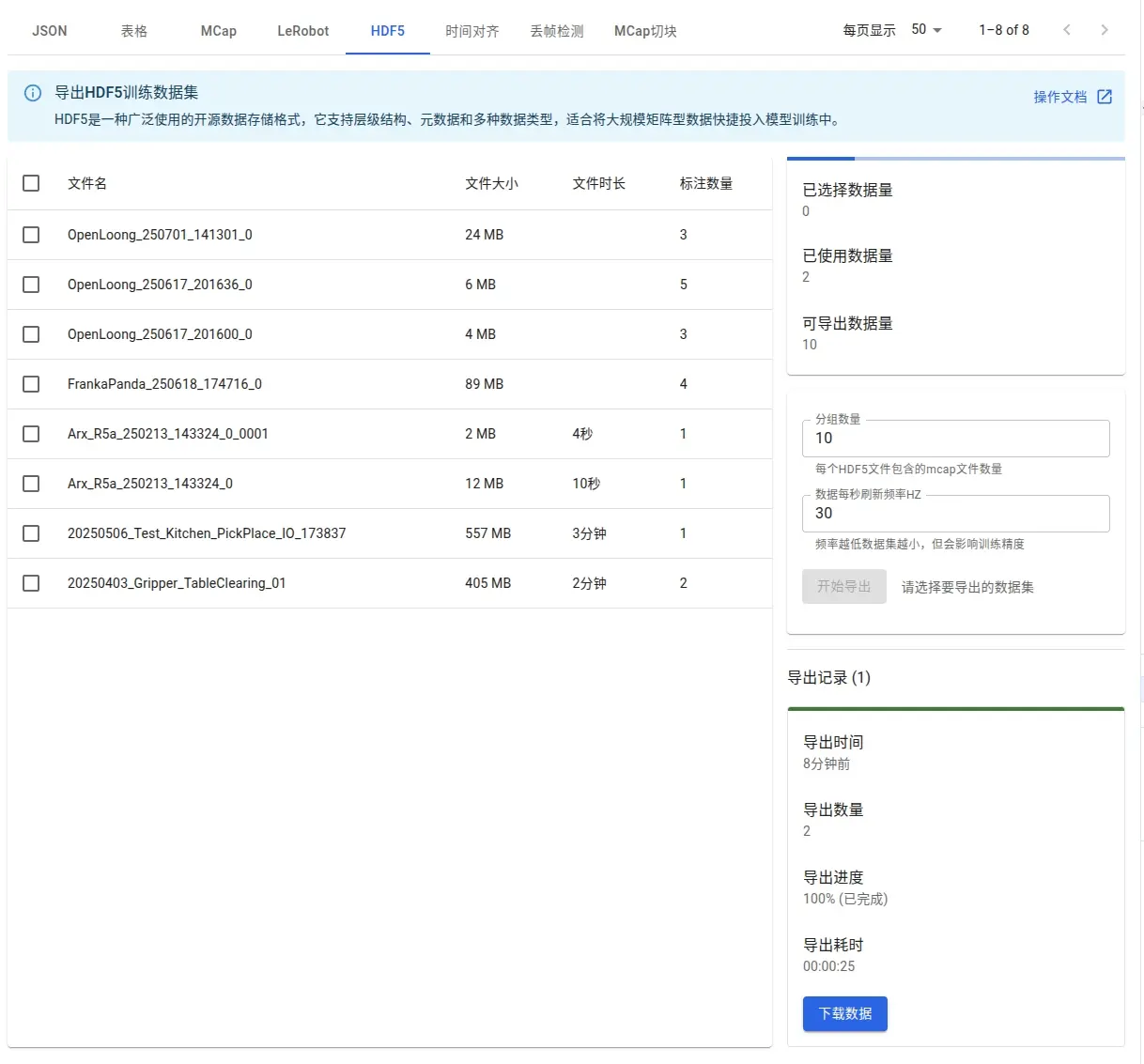HDF5 Dataset
HDF5 (Hierarchical Data Format v5) is an efficient, flexible storage format widely used in embodied AI. Its hierarchical groups/datasets make it easy to organize multimodal data, with fast I/O and cross‑platform sharing.
Import
Device vendors may use different folder/naming conventions. The platform supports common external collectors (e.g., SenseTime Piper). If your schema isn’t supported yet, contact us with the structure and we’ll adapt quickly.
Export
You can export annotated mcap/bag/hdf5 inputs as HDF5 for ML training. Annotation associates actions with NL instructions so VLA models learn to follow language.
See: Annotation
After annotation, select subsets to export.

- Group size: how many raw files per HDF5 (set 1 for one‑to‑one)
- Refresh rate: sampling frequency per second (affects size)
After export, view results on the page:

Downloaded data:
Structure
Exported files are grouped (e.g., chunk_001.hdf5) and follow a tree layout:
- Root
/ - Subgroups like
/data,/meta/datacontains subgroups per episode (episode_001,episode_002, ...)
- Datasets under each
/data/episode_xxxinclude:- Attributes
task(EN instruction)task_zh(ZH instruction)score(quality score)
- Stored data
action(joint commands, ND array)observation.images.*(compressed images)observation.state(sensor states)observation.gripper(gripper state)
- Attributes
Example:
HDF5 "./chunk_001.hdf5" {
FILE_CONTENTS {
group /
group /data
group /data/episode_001
dataset /data/episode_001/action
dataset /data/episode_001/observation.gripper
dataset /data/episode_001/observation.images.camera_01
dataset /data/episode_001/observation.images.camera_02
dataset /data/episode_001/observation.images.camera_03
dataset /data/episode_001/observation.images.camera_04
dataset /data/episode_001/observation.state
group /data/episode_002
dataset /data/episode_002/action
dataset /data/episode_002/observation.gripper
dataset /data/episode_002/observation.images.camera_01
dataset /data/episode_002/observation.images.camera_02
dataset /data/episode_002/observation.images.camera_03
dataset /data/episode_002/observation.images.camera_04
dataset /data/episode_002/observation.state
......
group /meta
}
}
Read example
Using Python h5py:
import h5py
with h5py.File('chunk_001.hdf5', 'r') as f:
print('top:', list(f.keys()))
episode_001 = f['/data/episode_001']
print('episode_001 datasets:', list(episode_001.keys()))
action = episode_001['action'][:]
print('action:', action)
When to use HDF5
- Scalable multimodal storage (images, sensors, etc.)
- Built‑in compression
- Cross‑platform sharing/migration
- Flexible hierarchy for complex tasks
Robot training
Exported HDF5 can be used for imitation learning, RL, and VLA models.
See training details: HDF5 for robot training